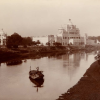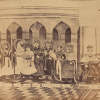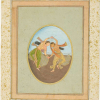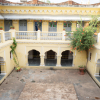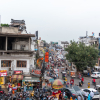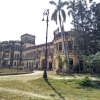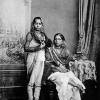With over 150 vintage cycles, the Vikram Pendse Cycles Museum gives us an opportunity to take quite a ride through history. From a foldable Airborne Paratrooper Bicycle used in World War II to the unique self-oiling 1914 Golden Sunbeam, we put the spotlight on this unique Pune museum. (Photo Courtesy: Museumsofindia.org)
Not many people would choose bicycles as their preferred mode of transport in a war zone, but during the Second World War, over 60,000 Airborne Paratrooper Bicycles were made specifically to be used during the war. Manufactured by Birmingham Small Arms (BSA), a popular bicycle brand today, these bicycles were used extensively by British and Indian paratroopers. These special cycles were folded in half and carried in backpacks when soldiers were airdropped into a war zone, and were ideal modes of stealth transport.
That continued until 1944, when they were overtaken by military jeeps. Fifty-two years later, in 1995–96, a single 1940 BSA Airborne Paratrooper bike made its way to Vikram Pendse in Pune, Maharashtra. The commerce graduate was gifted this unique piece of history, which fuelled his passion for bicycles and motorbikes. This formed the first piece of what has now grown to be one of India’s largest collections of bikes and bike accessories. In 2012, Pendse conducted his first exhibition of cycles at Harshal Hall, Pune. Encouraged by the amazing response, he opened the Vikram Pendse Cycles Museum to the public on May 18, 2017.
Bicycles in India
While this particular bicycle has an interesting connection with Indian history, the two-wheeled mode of transport first made its way to India in the 1890s—almost 70 years after Karl Drais invented the cycle in 1817. Brought in by the British, cycles were often seen in towns and villages across India by the 1960s.[i] While their use was initially restricted to European authorities, they soon seeped down to the Indian middle class, becoming a symbol of a self-reliant lifestyle.
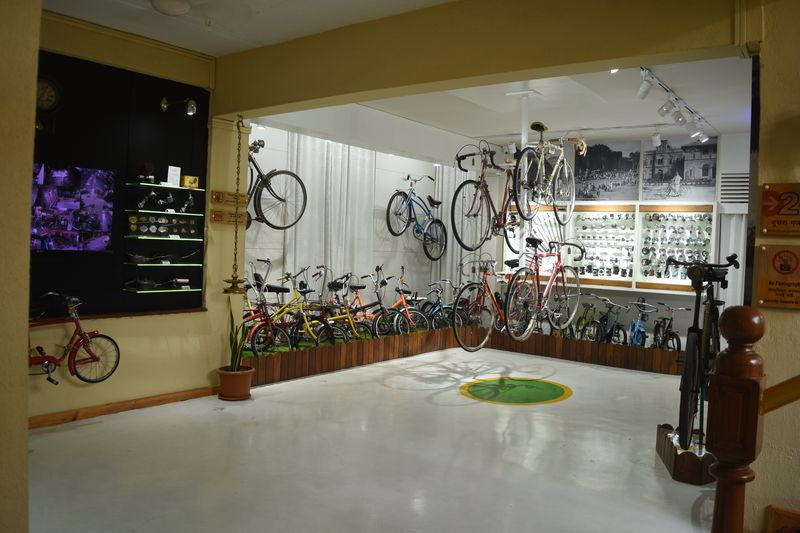
Recognising the bicycle as a tool of worldwide development and not just a mode of transportation, the United Nations marked June 3 as World Bicycle Day in 2018 (Courtesy: museumsofindia.org)
Bicycles created more socio-economic opportunities by making transportation easier for people like potters, milkmen, vegetable sellers, etc., to carry their wares, thus contributing to the overall economy.[ii] This was the case not only in India, but across the world. Recognising the bicycle as a tool of worldwide development and not just a mode of transportation, the United Nations marked June 3 as World Bicycle Day in 2018.
While there is much more to the history of bicycles and their journey in India, not much of it has been documented. However, one can take a nostalgic walk through the many galleries that house over 150 vintage bicycles and other bike curios at the country’s only privately-owned bicycle museum.
The Museum’s Collection
This three-storeyed museum in Pune’s Karve Nagar boasts of range-geared racing cycles, tandems (a bicycle with seats and pedals for two riders), beach cycles, and different types of children’s cycles and tricycles.
The oldest bicycle in the collection is a 1914 Golden Sunbeam. This 28-inch gentlemen’s cycle is still functional, with its original paint, decals and parts intact. The cycle was incorporated with a version of Harrison Carter’s ‘little oil-bath chain case’. Using this case, the cycle actually oils itself. The driving gear and bearings run are dunked in oil and kept inside a dust-proof case. Pendse claims that the cycle is the only one of its kind, and was meant to last the lifetime of its owner.
Recounting the many stories associated with the elements he’s collected over the decades, over the phone, Pendse talks about how some bicycles were considered status symbols. While the Hercules machines were considered mazdoor or workers’ cycles, expensive ones like Raleighs were thought to be a babu (elite class) cycle.[iii] ‘The museum has a gent’s tricycle manufactured by James Cycle Co. Ltd in 1925. This cycle was owned by many doctors, lawyers and engineers, and was seen as a status symbol in those days,’ says Pendse.
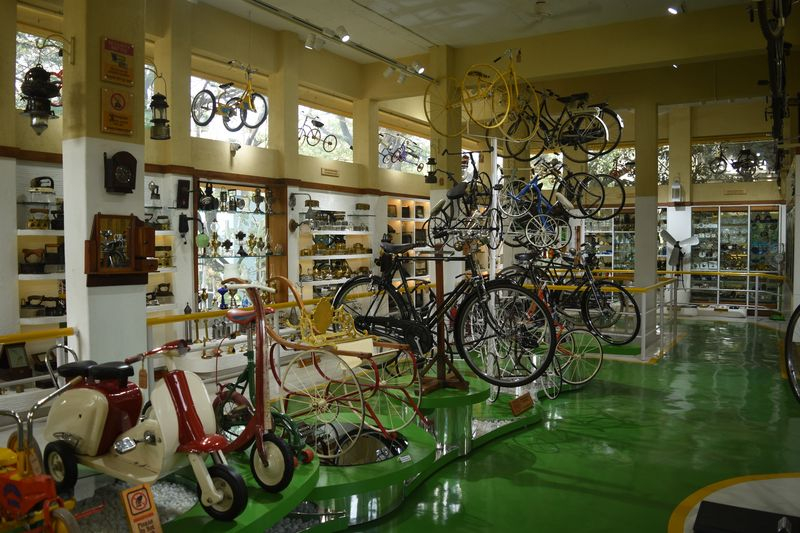
The collection also includes bicycle accessories such as gears, seats, dynamos, air pumps and lamps that Pendse collected from his travels and visits to antique stores around the world (Courtesy: museumsofindia.org)
What makes the collection invaluable is not just the cycles themselves, but the stories behind them and their previous owners. Take, for instance, a 1950s' vintage Mobo Ride-on Horse from England on display. Pressing both the stirrups moves the horse forward, and pressing the stirrups on either side moves it sideways, explains Pendse, adding that he has a picture of Rajiv Gandhi as a child riding the same horse, along with his grandfather, Jawaharlal Nehru, and mother, Indira Gandhi.
The collection also includes bicycle accessories such as gears, seats, dynamos, air pumps and lamps that Pendse collected from his travels and visits to antique stores around the world. There is even a cycle shop, inspired by the early 1950s. While cycles and cycle-related curios form the main theme of the place, there is also a collection of vintage household items, ranging from kerosene-operated fans and iron boxes to paan boxes and gramophones for people to delight in. Making sure they’re technologically updated, each display has a QR code that gives visitors on-the-spot information about the displayed item.
If you’re interested in two-wheeled wonders, then the Vikram Pendse Cycles Museum will give you an opportunity to take quite a ride through history.
Address: 22, Harsh Shawas Society, Karve Nagar, Pune, Maharashtra
Timings: 11:00 am to 7:00 pm (Tuesdays closed)
Tickets: Rs 100 for those above five years
This article was also published on The Indian Express. Sahapedia runs the project www.museumsofindia.org.
Notes


